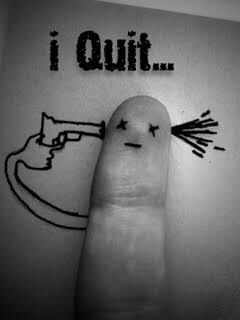
Suicide is intentional self-destruction.
Suicidal ideation
Suicidal ideation is a preoccupation with committing suicide. These ideas may be-

-Occasional and transient
– Frequent
– Persistent
– Compelling or impulsive
Impulsive suicide is often associated with alcohol or substance abuse and may occur while the subject is intoxicated or in withdrawal.
Suicidal Communications:
It refers to talking about committing suicides by different ways.
Parasuicide:
It refers to suicidal attempts or gestures.
Suicidal behaviour:
It includes completed suicide, parasuicide, suicidal ideation, and suicidal communications.
Objectives of Suicide
To harm himself or herself or with the intent to die.
For purposes other than self-destruction.
Causes –
Social factors:

-Rootlessness
– confusion,
– lack of connectedness –hopelessness
-shame,
-self-reproach
– domestic violence and –parental alcoholism.
Genetic factors:
The genetics of suicide are probably linked with the genetics of affective disorders. The probability of suicide is increased in families with a history of bipolar disorder.
Neuroendocrine and neurochemical factors:
-Abnormal hypothalamopituitaryadrenocortical functioning
– growth hormone hyposecretion
-growth hormone hypersecretion during sleep
-lower levels of urinary secretion of 3-methoxy-4-hydroxy-phenylglycol
– abnormality of central serotonin metabolism and low levels of cerebrospinal fluid 5-hydroxy-indoleacetic acid
a serotonin metabolite.
Psychiatric disorders:
History of psychiatric disorders is common in suicidal cases. These include,
– major depressive disorder,
– dysthymic disorder-bipolar disorder
-conduct disorder -substance use disorder borderline personality disorder, complex, abuse-related posttraumatic stress disorder, intermittent explosive disorder and schizophrenia or schizoaffective disorders.
Sometimes, the suicidal act is a response to command hallucinations or delusions e. g. in schizophrenia, schizoaffective disorder, or dissociative hallucinosis.
Transactional diathesis- stress model:
It suggests that inclining psychological factors e. g. exposure to domestic violence, abuse, neglect, rejection, parental psychopathology, parental separation, conflict with a parent, conflictual divorce, separation from or death of a loved parent, sibling, relative, friend, or pet, rejection by a desired romantic partner, academic failure, suspension from school, unemployment or loss of employment, humiliation by peers or family, or police involvement together with a genetic predisposition to affective disorder or impulsivity, lay the groundwork for a weak or vulnerable personality.
Vulnerable individuals have difficulty in resolving the situation and expressing emotion in words. As a result, they brood fruitlessly and float into a state of hopelessness. They feel unfortunate and become chronically pessimistic. They lack the capacity for a facing situations and events and are impaired in the capacity for self-reflection, emotional expression, and impulse control.
When things go wrong, their pessimistic outlooks are fulfilled and they blame themselves and develop low self-esteem, pessimism, fatalism, and an impaired capacity to regulate affect and impulse when stressed.
Common Motivations for the Suicidal Act
Motivation

Atonement
I will punish myself for what I have done.
Control
I am unafraid of death.
Escape
I want to be free of my body and my life.
Rebirth
After I die, I can start again.
Reunion
I’ll join my mother in heaven.
Revenge
They’ll be sorry when I’ve gone.
Self-sacrifice
My death will bring them together.
Risk Factors
-Family conflict
– family problems -personal loss
-problems with the opposite sex
-recent rejection or humiliation by family or peers
– problems at school
-suspension from school -problems at work
– loss of a job.
Treatment
Extended individual psychotherapy
Cognitive-behavioural therapy
Family therapy, or a combination of these therapies will be required, together Homoeopathy.
Homeopathy is one of the most popular holistic systems of medicine. The selection of remedy is based upon the theory of individualization and symptoms similarity by using holistic approach. This is the only way through which a state of complete health can be regained by removing all the sign and symptoms related to suicidal thoughts from which the patient is suffering. The aim of homeopathy is not only to treat psychic conditions related to suicidal thoughts but to address its underlying cause and individual susceptibility. As far as therapeutic medication is concerned, several remedies are available to treat the state where suicidal thoughts are dominant that can be selected on the basis of cause, sensations and modalities of the complaints like anacardium , pulsatilla, psorinum,ant crud ,ant tart , staphysagaria,ignatia ,merc etc .
For individualized remedy selection and treatment, the patient should consult a qualified homeopathic doctor


